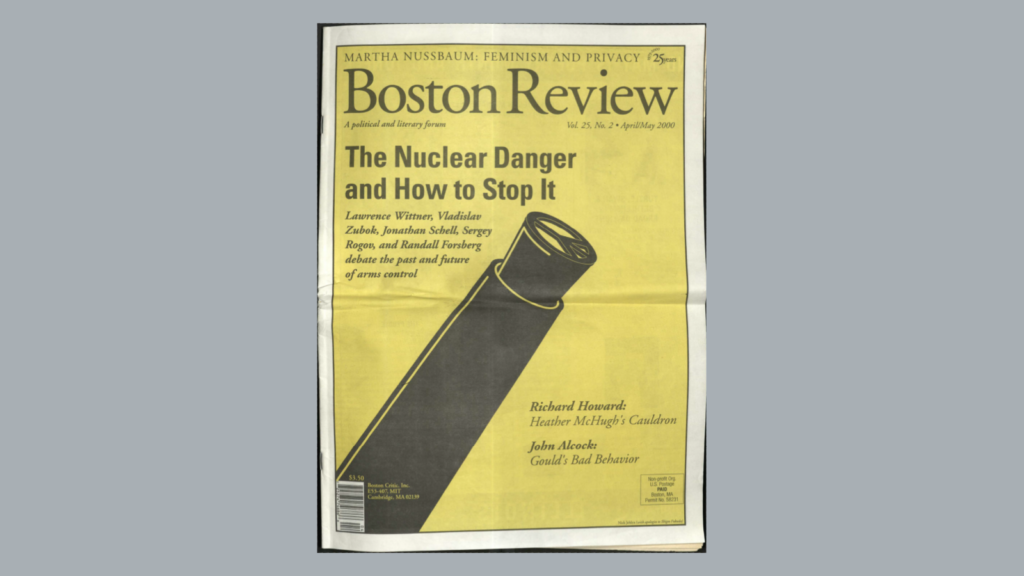The Nuclear Danger and How to Stop It
How the Nuclear Freeze movement forced Reagan to make progress on arms control
Lawrence S. Wittner
How the Soviet leader became a nuclear abolitionist
Vladislav M. Zubo
Did the end of the Cold War mean the end of arms control?
Jonathan Schell
To reduce the nuclear danger, we must modernize arms control
Sergey Rogov
What can we do to prevent a nuclear catastrophe?
Randall Forsberg
Essays
Stephen Jay Gould is wrong about evolution
John Alcock
What the Indian constitutional tradition can teach about sex equality
Martha Nussbaum
Fiction
Jarda Cervenka
New Fiction Forum
Why literary success is a product of chance, not destiny
Tom Bissell
Peter Gadol, Light at Dusk and Robert C.S. Downs, The Fifth Season
Randall Curb
Jill Eisenstadt
Roger Boylan
Lucinda Rosenfeld
Reviews
Richard Howard
Donald Revell
Barbara Fischer
Brian Lennon
Poetry
Introduced by Allen Grossman
Elizabeth Alexander
Charles Simic
Gillian Conole
Cort Day
Cort Day
Charles Bernstein
Kathleen McGookey
Darryl Phelps
Tomaž Šalamun
On Film
Julie Taymor’s Titus
Alan A. Stone


